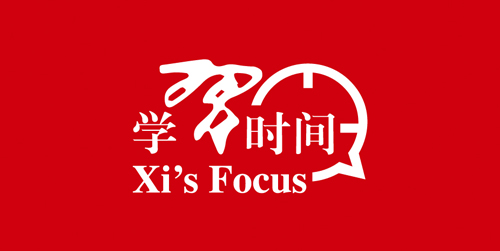The term is attributed originally to Confucius, with initial references found in the Book of Poetry and Book of Rites—the latter providing a fuller description and likely compiled more than 2,000 years ago during the tumultuous Warring States period (475-221 B.C.) in Chinese history.
In the Book of Rites account, Confucius describes establishing a xiaokang society as reaching a new threshold of social and political development after a period of relative chaos. Thus, Confucius focuses on two milestones: one in which the basic and increasing needs of society are reliably met and trending positively, with a capable state that is well-ordered and effective at the helm. Such a state must be demonstrably capable of solving problems progressively, thereby advancing step by step toward datong—great harmony—arguably best described in contemporary language as a relatively advanced stage of socialist development and common prosperity.
It's in this context one can understand China's emphases on improving governance, eliminating extreme poverty, and pursuing green development and common prosperity as key elements in a new era of national rejuvenation. Indeed, having reached the xiaokang threshold, new goals are now more clearly articulated and coming into focus, including making "major breakthroughs in core technologies in key areas" consistent with "basic socialist modernization" by 2035, and by 2049 (i.e., the 100th anniversary of the People's Republic of China's founding), "a modern socialist country that is prosperous, strong, democratic, culturally advanced, harmonious and beautiful."
Timeliness of xiaokang
By necessity, good governance must be accompanied by the rule of law, and each generation has sought both, given the developmental challenges they face in their respective eras. The current CPC leadership has scored pivotal breakthroughs on both fronts, and thus has been able to demonstrate the sort of governance one might associate with a xiaokang society.
Xi Jinping's anti-corruption campaign, initiated soon after taking office as general secretary of the CPC Central Committee in 2012, became the most significant achievement associated with his tenure. Furthermore, he leveraged this campaign into its immediate objective: improved governance. This is why the term has been the titles of his major works and the focal point of his efforts to date.
We should not underestimate the timeliness of these developments. On the one hand, they were absolutely necessary for China, which risked remaining stuck politically and economically in practices that had exhausted its capacity for continued growth and development, and that all but guaranteed China would become stuck in the dreaded "middle-income trap."
On the other hand, while China can draw much comfort from the fact that high growth rates have returned and that it was the first to contain COVID-19 and emerge from negative to positive growth, it's unlikely that the country would have been capable of responding as effectively to the outbreak had it not already undertaken the very difficult work associated with governance reforms.
Thus, we can see that these efforts, starting with the anti-corruption campaign in tandem with building the rule of law, bureaucratic streamlining and a new underlining of innovation plus the digital and green revolutions, helped position China to face a crisis better than any other country. Indeed, it might be said that the crisis China faced with the outbreak was even worse initially than others faced. China had to battle an unknown, while others, including the U.S. ,were forewarned personally by the Chinese leadership and still failed to respond adequately, costing millions of lives and trillions of dollars globally.
An overall evolution
China's development goals explicitly describe building socialism. In the early days of reform and opening up it was understood that it would be necessary for development to occur in some parts of China ahead of others, and that some would enjoy prosperity first. Normatively, this is not at odds with authentic socialist development schemes or even classical Marxist theories. In fact, from a Marxist historicist perspective, socialism becomes possible only after a certain level of economic and social development is achieved, and if we follow Karl Marx closely, this development is accelerated by capitalism. In China's case, however, capitalism has been understood as a stage of development, as the means to an end, but even so, it's been tempered from the start with a socialist teleology and socialist values, appearing therefore as the "socialist market economy."
If one reads the hyperbolic Western press about current economic reforms and regulations in China, one gets the sense that these ongoing efforts are a gross betrayal of free market principles, and worse, that China isn't making progress; it's going backward on nearly every front except its capacity to threaten others. Aside from the fact that China was never a declared devotee of free market principles (and in practice, neither is everyone else), and had instead built a rational regime of macro controls, how could such a contradiction be possible—that it's simultaneously going backward while forging ahead?
The white paper is the best summary of China's achievements, including becoming the second largest economy in the world—its GDP exceeded $15 trillion last year, with per-capita GDP more than $10,000. Extreme poverty has been eliminated and more than 770 million have been lifted out of poverty since 1978, which equals 70 percent of the world poverty alleviation total over the same period. More than 400 million are middle-income earners, a number that is still growing, and for many around the world, China is the most desirable market to access, supported by its continued growth rates and confirmed by the fact that China is the world's top destination for foreign direct investment.
The white paper also summarizes the many efforts that were used to advance prosperity, including urbanization and household registration reforms, improved access to healthcare, education and finance, major increases in employment levels, and significant environmental improvements.
The report notes that China's role as one of the key drivers of the global economy, and particularly the vital role it has played and continues to play helping others recover, from vaccine production and supply to manufacturing personal protection equipment, as well as computers and other devices essential for people working from home or learning remotely.
Isn't all of this commonsensical and progressive? And yet, what has happened elsewhere over the same period of time? The United States, for example, made headlines for its war crimes, racial conflicts, police brutality, irresponsible economic policies that trigger global economic crises, decreasing real wages and relative declines in economic and military power. These have been accompanied with the deteriorating capacity for governance, including increased polarization and gridlock, specious spirals of blaming and shaming internal and external foes, and the worst of it exposed during the pandemic. And still the orientation toward hegemony and violence remains, leaving Afghanistan in ruins to reposition against China, while claiming the moral high ground of democracy and human rights.















